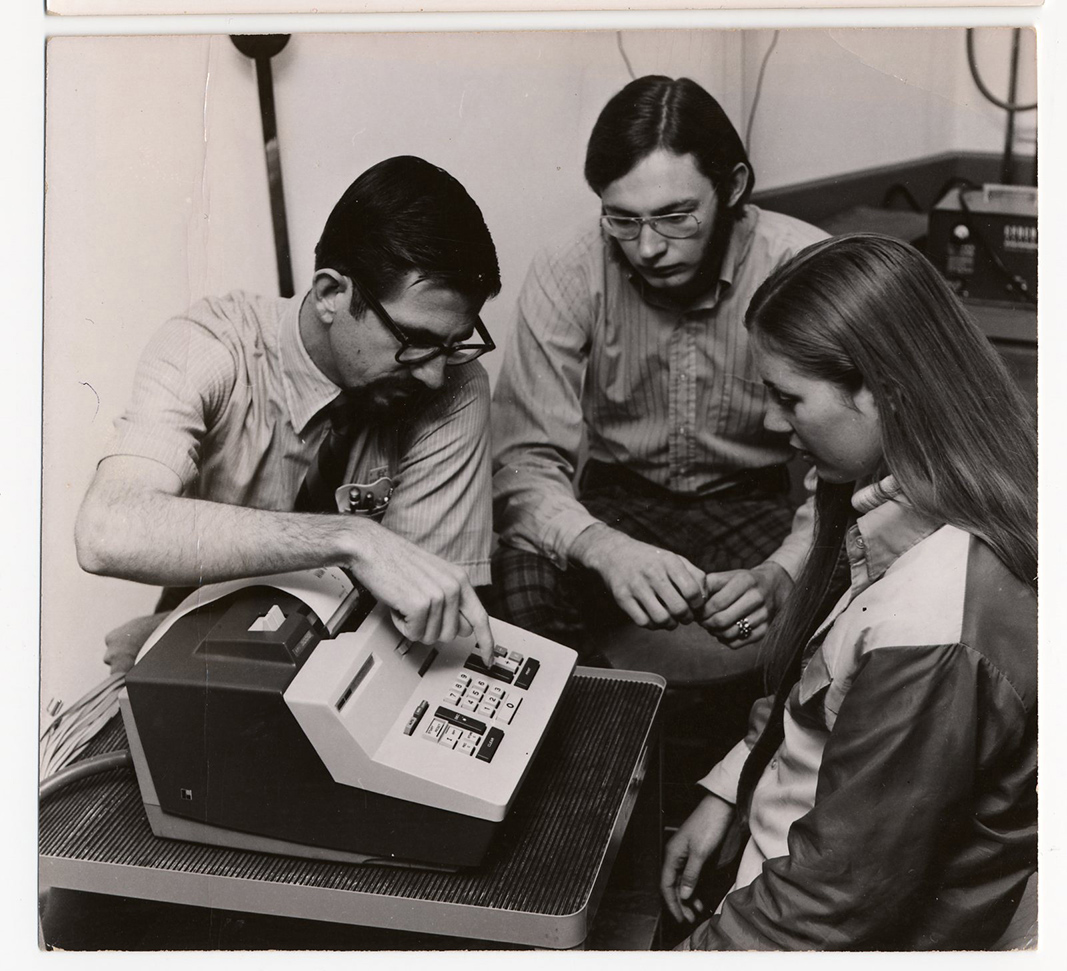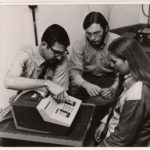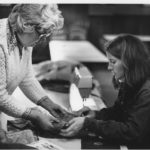This article first appeared in the March 5, 2016 issue of the Post Independent.
In the 1970s mountain towns of the Colorado Mountain College district, the college started to serve a different kind of student, in addition to the first students who’d been attending at CMC’s two residential campuses. Not only did local high school graduates continue to enroll in two-year degree programs at the residential campuses in Spring Valley and Leadville, but their parents, their younger siblings and
their neighbors were also turning toward CMC.
The classes that this new breed of students took ranged from Slimnastics or Silver Jewelry Construction to Real Estate Finance or Religions of Man. Working adults improved their skills in typing or accounting classes, or customer service workshops. Children took dance classes, and the well-known fiber arts instructor Emmy Neil began logging the thousands of miles she would cover during the next 30 years, driving up and down the valley with her sewing machines and crochet needles to offer her popular classes.
Part of CMC’s intended mission was to broaden its class offerings under the umbrella of continuing education. Community-based campuses started cropping up in all the district’s major mountain towns, starting with Aspen.
Steve Mills was hired to staff the Aspen office, and later assumed the responsibility of overseeing continuing education across the CMC district. “The college tuned in to community needs,” Mills said. Local businesses looked to the college to provide training they needed. In Glenwood Springs, the police department, hospital and local carpenters paid tuition for their staffs to take professional development courses.
Surveys determined that 10 percent of the adult population lacked a high school diploma, so CMC started a GED (general equivalency diploma) program. The college’s staff “built the biggest adult basic education program in the state,” Mills said. It grew even further to include programs at the correctional facility in Rifle.
‘The place to be’
At the time, these community campuses didn’t have their own brick-and-mortar buildings. Classes were held in multiple locations, including some private homes.
In 1972, CMC’s continuing education division operated out of the basement of the Hotel Colorado in Glenwood Springs. It had only two classrooms, one of which was the World War II naval brig, with jail bars still covering the windows.
Center Director Martha Cochran said, “We grew fast. We rented every room in town, from schools to banks. We went everywhere.”
A short time later, Carbondale established a continuing education office in the basement of a dentist’s office. Staff moved desks and chairs up and down Main Street to furnish classrooms in various rented spaces.
“In those days, Glenwood Springs was a quiet town and there wasn’t much culture,” said Cochran. “CMC became the place to be. It was the place where you met people, where people interacted and where people began learning things like exercise. Nobody else had exercise classes before that. There was no arts center; we didn’t have any of those things. So we taught everything from painting to sewing to quilting to upholstery to life skills.
“Is it interesting? Is it something someone would like to learn? Those were the only criteria for offering a class,” she said.
Community members signed up for these classes in increasing numbers throughout the decade. In Carbondale, the continuing education program enrolled 310 students in the 1973-74 academic year; just four years later, it enrolled 1,763 students, an increase of 468 percent. Glenwood Springs’ estimated initial number of students in 1972-73 was 1,713, rising to 2,901 in 1976-77.
In the absence of the other entities that today serve as community and recreation centers, and art and dance studios, CMC in the 1970s picked up most every kind of education, training and classes that the community needed and wanted. Ruth Kirschbaum, an instructor and staff member with CMC for most of its 50-year history, said the sentiment at that time was, “CMC could do anything for anybody.”
Join in 50th celebration, continuing education
Colorado Mountain College is celebrating its 50th anniversary throughout 2017, thanks to presenting sponsors Alpine Bank, Jim and Connie Calaway, Holy Cross Energy (a Touchstone Energy Cooperative), Morgridge Family Foundation and Sodexo.
To learn more about this year’s anniversary celebrations, read stories about alumni or past employees, or share your own favorite CMC stories, please go to www.CMCBecauseOfYou.org.
Colorado Mountain College maintains its commitment to offering continuing education classes. CMC encourages and invites community members to consider sharing their talents through teaching classes and workshops in their area of expertise. If you have an idea for teaching a class, or want to express interest in the college offering a class, please contact one of our continuing education coordinators: Sam Schroyer in Glenwood Springs (947-8477) or Marianne Ackerman in Carbondale (963-2172).



